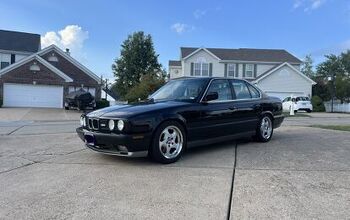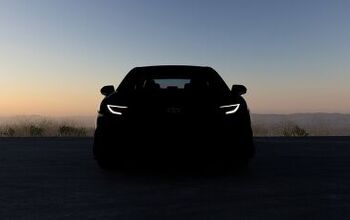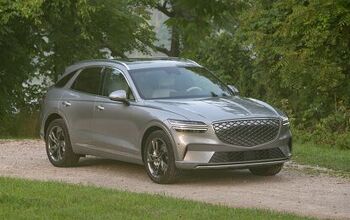Great Wall's Descent A Sign Local Industry Not Ready For Primetime
Once the darling of investors amid ambitions of taking on foreign automakers such as Jeep with its line of SUVs, Great Wall Motors’ recent fall from grace on the back of the upscale Haval H8 may be a sign Chinese automakers are not yet ready to move from production of cheap transportation.
Bloomberg reports production of the 200,000 yuan ($32,100 USD) SUV, aimed at the likes of the Volkswagen Tiguan and Ford Kuga, was suspended indefinitely earlier this month amid quality concerns regarding “knocking noises” from the six-speed automatic transmission at high speeds. The second delay of the H8 — the first occurring earlier this year after local press panned the SUV in test drives — sent Great Wall’s stock price down 17 percent, while seven analysts cut their ratings of the automaker due to perceived weaknesses in the overall local industry from the suspension. Oriental Patron Financial Group analyst Vivien Chen, one of the seven, explains:
We believe the event indicates domestic automakers haven’t met requirements to upgrade to be a high-end vehicle maker. The event definitely hurt customers’ perception of H8, and hurt company image.
The suspension is the latest stumbling block for Great Wall, having faced a recall with Chery of 23,000 units from Australia in 2012 when banned asbestos parts were found in some models. In addition, 2013 exports fell 22 percent to nearly 75,000 units due to currency challenges in Japan and South Korea. Locally, the automaker is faring better, having moved almost 112,000 SUVs over its competitors so far in 2014, though the market overall fell 2.5 percent in April to 37.1 percent for local automakers, the eight consecutive month this has occurred.
Despite the setbacks, Macquarie Group analyst Janet Lewis believes Great Wall and the rest of the Chinese automakers may be able to learn from the experience as they move forward toward selling their wares to developed markets such as the United States, though they all still have a long road ahead of them, as Sanford C. Bernstein analyst Max Warburton points out with Great Wall:
The company faces monumental challenges in trying to move up a league in the automotive world, and the problems faced by the H8 confirm Great Wall is struggling with technology. Serious questions will now be asked about Great Wall’s growth potential.
Seattle-based writer, blogger, and photographer for many a publication. Born in Louisville. Raised in Kansas. Where I lay my head is home.
More by Cameron Aubernon
Latest Car Reviews
Read moreLatest Product Reviews
Read moreRecent Comments
- Jeff Self driving cars are not ready for prime time.
- Lichtronamo Watch as the non-us based automakers shift more production to Mexico in the future.
- 28-Cars-Later " Electrek recently dug around in Tesla’s online parts catalog and found that the windshield costs a whopping $1,900 to replace.To be fair, that’s around what a Mercedes S-Class or Rivian windshield costs, but the Tesla’s glass is unique because of its shape. It’s also worth noting that most insurance plans have glass replacement options that can make the repair a low- or zero-cost issue. "Now I understand why my insurance is so high despite no claims for years and about 7,500 annual miles between three cars.
- AMcA My theory is that that when the Big 3 gave away the store to the UAW in the last contract, there was a side deal in which the UAW promised to go after the non-organized transplant plants. Even the UAW understands that if the wage differential gets too high it's gonna kill the golden goose.
- MKizzy Why else does range matter? Because in the EV advocate's dream scenario of a post-ICE future, the average multi-car household will find itself with more EVs in their garages and driveways than places to plug them in or the capacity to charge then all at once without significant electrical upgrades. Unless each vehicle has enough range to allow for multiple days without plugging in, fighting over charging access in multi-EV households will be right up there with finances for causes of domestic strife.


































Comments
Join the conversation
The asbestos is being replaced with the lead they used to use in toy paint and the sulfur they used to put in drywall. It will instead be used as a substitute for melamine in infant formula.
Until they have a uniform rule of law, fixing one company or one industry isn't going to make it work out. Every judge is a feudal lord, and unless the council of kings is angered enough to off him, his word is law. We can hate on government regulation, but it's total absence is a bit of a challenge, especially if your competitors are less ethical than you are.